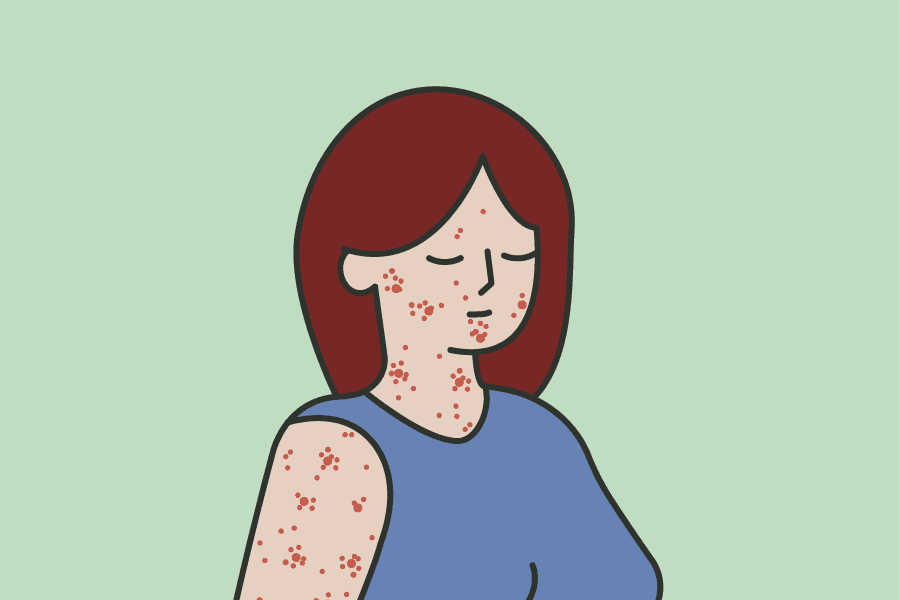The virus is transmitted via droplets. This is often a mild infection that causes a rash on the skin, typically the abdomen and arms, but can also appear as a rash on the face creating a weather-beaten appearance. You can also develop a fever and swollen lymph nodes at the back of the neck.
All pregnant women in the US are screened for rubella in the first trimester. A blood test will be done to see if you are immune to rubella during your first visit at the prenatal clinic. Since the 1970s, this infection has been included in the general immunization program for children. Those who have had the infection or been vaccinated have antibodies and cannot get the infection again. If you are not immune, you will be offered immunization after delivery in the hospital before you go home. Avoid contracting rubella during pregnancy since you cannot be vaccinated while pregnant and there is a risk of infecting your baby. If you have not been vaccinated and contract rubella while pregnant, there is a significant risk that it will pass to your baby. If this happens in early pregnancy, there is a major risk of serious problems for the baby or miscarriage. Rubella is rare in Sweden, but the virus is still active in some parts of the world. This is something to consider before going abroad if you have never received the vaccine/have antibodies.
Source:
